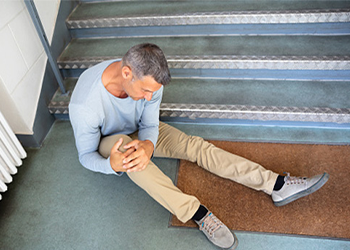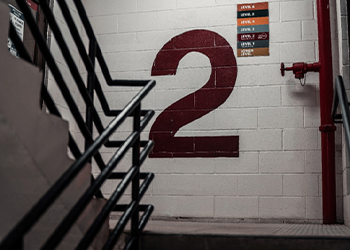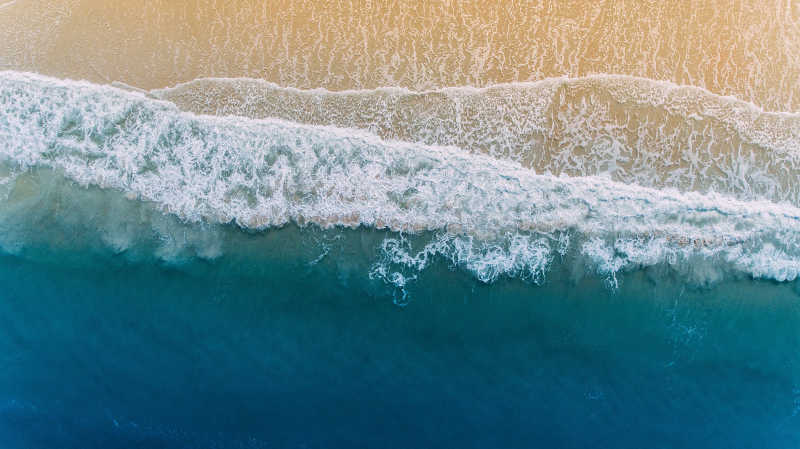Slip and Fall Attorney in Boca Raton, Florida
Slip and fall accidents are common incidents in Florida. They occur when someone trips or slips and falls and therefore becomes injured. Depending on where this accident occurs, the property owner may be held liable for the injuries sustained by the individual. In many cases, the property owner’s insurance policy covers a victim’s claim.
 Anyone can be injured in a slip and fall. Usually, people assume only the elderly are at risk. In reality, however, anyone can fall in a public building, business, or on private property. The reasons people fall vary greatly. Anything from rain, spilled liquids, to worn-out carpeting can send you tumbling. Not surprisingly, people can suffer traumatic brain injuries and other life-threatening injuries – or oven death – resulting from a slip and fall.
Anyone can be injured in a slip and fall. Usually, people assume only the elderly are at risk. In reality, however, anyone can fall in a public building, business, or on private property. The reasons people fall vary greatly. Anything from rain, spilled liquids, to worn-out carpeting can send you tumbling. Not surprisingly, people can suffer traumatic brain injuries and other life-threatening injuries – or oven death – resulting from a slip and fall.
At Goldblatt Law, we know how to effectively represent injured persons and their families in slip and fall cases. We will help clarify your legal claims with the insurance company and negligent property owner. We can determine how you should proceed in a slip and fall claim and compile a strong case for compensation. Let us fight hard on your behalf to get you the compensation and justice you deserve. Call a personal injury lawyer at Goldblatt Law today at (561) 868-2000 or visit us online to schedule your free consultation.
Slip And Fall Lawyer Information Center
Florida Laws Regarding Slip And Falls
Florida laws provide a standard method of recovery for those injured in slip and fall incidents. Because Florida’s law has unique wrinkles, we recommend you hire a Florida attorney for your claim. At Goldblatt Law, we are well aware of all deadlines for court filings and what evidence you will need to be successful.
Florida slip and fall law is a combination of judge-made common law and statutory law passed by the legislature. We must pay close attention to both sources of law when bringing a claim.
Common Law Negligence
Premises liability claims are a variety of negligence claims. Essentially, negligence is a cause of action when someone hurts you because they were not acting with sufficient care. The law doesn’t require that a person use their utmost care to avoid hurting you. But they must use reasonable care based on the circumstances.
Most premises liability claims are negligence claims. We argue the property owner (or person who controlled the property) was insufficiently careful at maintaining it. Consequently, you were hurt by a defect or danger on the premises.
One key consideration is why you were on the property. The amount of care a property owner must exercise depends on this reason.
Florida Statutory Law
A Florida statute addresses a common situation involving transitory substances on the floor. Think of things like spilled liquids. If you slip and fall on a transitory substance, you must prove the property owner had actual or constructive knowledge of it.
Actual knowledge is easy. The property owner saw the substance, or someone told them about it. In this way, they know something is on the floor which could cause someone to slip.
Constructive knowledge is a little different. The owner doesn’t actually know about the substance, but they should have known about it. Usually, the substance has been on the ground so long a careful owner would have found it. An owner might also have constructive knowledge when a condition is reoccurring. For example, an air conditioner might drip condensation whenever it is turned on. The owner should know this always happens, so they have constructive knowledge and should regularly check the floor.
A Florida slip and fall attorney should know how to prove actual or constructive knowledge. As an example, a witness might testify they told the owner about the substance. Or closed-circuit TV shows the owner saw the liquid. Without an attorney, you may be unsuccessful in proving these key elements of your case.
What Do I Need To Prove To Win My Slip And Fall Case?
You must show a property owner created or failed to fix a dangerous situation on their property which injured you. The property owner does not have to intentionally create this danger. It’s enough that they knew of the hazard—or should have known—but did nothing. When owners fall beneath these standards, slip and fall victims can sue.
Your Status/Duty Of Care
What duties must property owners undertake? In Florida, it actually depends on why you were on the property and whether you had permission to be there. Florida classifies visitors as invitees, licensees, or trespassers. The duty of care will depend on your classification. Whether the victim is also a child will play a role, too.
Invitee
A majority of Florida slip and falls take place in businesses or public buildings. Common locations for slip and falls are stores, hotels, or restaurants, where the injured party was a customer or guest. Under Florida law, these people are considered invitees.
An invitee is on the property for the economic benefit of the owner. Because of this, the property owner has a higher standard of care to meet. This high duty makes sense. The owner has invited them on and is benefiting financially from their presence. Consequently, the owner has a duty to keep the property reasonably safe.
How can the property owner satisfy this duty? First, they should fix any hazards they know about. They should also perform periodic inspections to uncover hazards. For example, a grocery store should have someone regularly check the aisles to find spilled liquids. Then they should promptly fix any hazard they find. And, if they can’t immediately fix the hazard, they should warn customers or cordon off the area.
Licensee
A licensee is someone on the premises by invitation of the owner. Licensees are often social guests. The property owner is not receiving any direct economic benefit from their presence. But the owner invites the licensee to their home for a specific time and purpose.
Property owners owe certain duties to licensees. One duty is to warn licensees of hidden dangers the owner knows about. For example, a homeowner’s deck might have a board that is loose and about to break at any time. If the owner knows about the board, they need to warn their guests about it. When it comes to licensees, a warning is usually sufficient. There is no duty to fix a hazard.
However, owners don’t owe a duty to licensees to inspect the property. This means they probably aren’t liable if they don’t know about the board. As you can see, this is a lower standard of care owed to licensees.
Trespasser
Finally, a trespasser is someone who is not allowed on the property in question in the first place. They either entered without permission or stayed after the owner told them to leave.
Sometimes, the line between licensee and trespasser is blurry. For example, a delivery person might enter your property to put a box by your door. However, this person is probably not a trespasser. When you ordered the package, you knew someone would deliver it to your door. In effect, you consented to them entering your property for a limited time to make delivery.
By contrast, if someone broke into your garage to look around, they have trespassed. The same is true if a member of the public walks around your lawn to look at your flowers.
Property owners have no duty to protect trespassers from hidden defects or to inspect the premises for their benefit. Instead, the owner simply has the duty to avoid intentional injury.
The law recognizes children are a special class of trespassers, and Florida imposes some duty of care for their benefit. In particular, an attractive nuisance might have drawn a child to the property. Think of a swimming pool or hot tub that a child can access.
When children trespass, owners might be liable to them for not keeping the property reasonably safe. For example, a hot tub might need a lid or be locked so a child cannot access it. If the child slips and falls, suffering injury, they might sue.
Breach Of The Duty Of Care
Once we know the correct duty of care, we next need to show the defendant breached it. This means showing the property was indeed in disrepair or had some defect the owner should have fixed or warned about. This will prove that the property owner breached their duty to allow you to have a safe visit.
Causation
After proving duty and breach, you’ll next have to prove causation. This means we will show that your injuries are directly related to the issue with the property. Your injuries must have been caused by the owner’s failure to properly maintain the property.
Often, causation is easy—especially for slip and fall accidents. Most of our clients suffer injuries you would expect from someone who fell. If you slipped on the stairs and hit your head on the ground, there is an obvious link between the faulty step and your injury.
Damages
Finally, after proving the above elements, we’ll need to show that you were indeed harmed by your slip and fall. This part of the equation is generally easier to prove than the above elements. Harm—called “damages” in Florida—can take many forms. The most common is financial loss caused by a bodily injury. If you broke your arm, you probably paid money to treat it. You have thus proved damages.
If you slipped but quickly recovered, you might not have a case. That’s because you haven’t suffered any type of loss the law can compensate for. Fright alone isn’t enough.
Once we can prove all of these parts, you may be able to be compensated for your injuries from the property owner. By hiring one of our experienced attorneys, we can help you put together your case and gather the necessary information to help you prove all of the required parts of your case.
Who Is Responsible For My Injuries?
So you fell and hurt yourself. Now what?
 First, you need to identify the correct person to sue. Sometimes this is easy. For example, if you fell in your sister’s house, you would have to sue your sister. If you fell in a store, you would sue the store owner.
First, you need to identify the correct person to sue. Sometimes this is easy. For example, if you fell in your sister’s house, you would have to sue your sister. If you fell in a store, you would sue the store owner.
However, sometimes it’s not so clear who has control of the property:
Common areas in malls or apartment buildings. You might have fallen in the lobby of an apartment building or in the stairwell. Or you might have fallen while walking between stores in a mall. You need to identify which company is responsible for these common areas.
Parking lots. You might assume the store owns the lot. But some parking lots are owned by independent companies who are responsible for maintaining them.
Sidewalks and roads. Responsibility for these public places might belong to the city or state. But in some situations, an adjacent property owner might be responsible.
We recommend hiring a Florida slip and fall attorney immediately. We can investigate to determine the correct person to sue. The last thing you want to do is sue the wrong person, which will simply delay obtaining compensation.
Second, you need to begin compiling helpful evidence. Some of that evidence might be in the possession of the property owner. For example, most stores have closed-circuit television, which might have recorded your fall. This is another reason to identify the entity in control of the premises.
How Much Can I Receive In Compensation?
We seek compensation for our client’s damages. These are the financial and non-financial losses you suffered because of your slip and fall. Our goal in every case is to maximize our client’s compensation—and we have a good track record of doing so.
The value of your case depends on the facts. We will analyze every factor and provide an overview of what kinds of compensation you might receive.
Some of the factors considered are:
How much you have lost out of pocket due to the fall, such as medical bills or lost income.
The severity and duration of your pain and emotional anguish.
Whether your own negligence contributed to the accident and/or your injuries.
The strength and quality of our evidence that the property owner was negligent.
Whether you want to immediately settle or can hold out for more.
Every case is different. Contact an attorney at Goldblatt Law today for an individualized case assessment.
Injury Attorneys Help You Get Compensated For A Property Owner’s Negligence
An experienced personal injury attorney can help you determine if you have a case following a slip and fall accident, and what areas of evidence you will need to make personal injury claims successful. We are ready to assist you in any way we can. We have already helped hundreds of Floridians make their lives whole again after an accident. Let us leverage our experience to help you, too.
At Goldblatt Law, we know how to bring slip and fall claims. During our consultation, we can provide an overview of the personal injury process. We will also analyze what additional evidence you need to be successful. Call us today at (561) 868-2000 or visit us online to schedule your free consultation.
